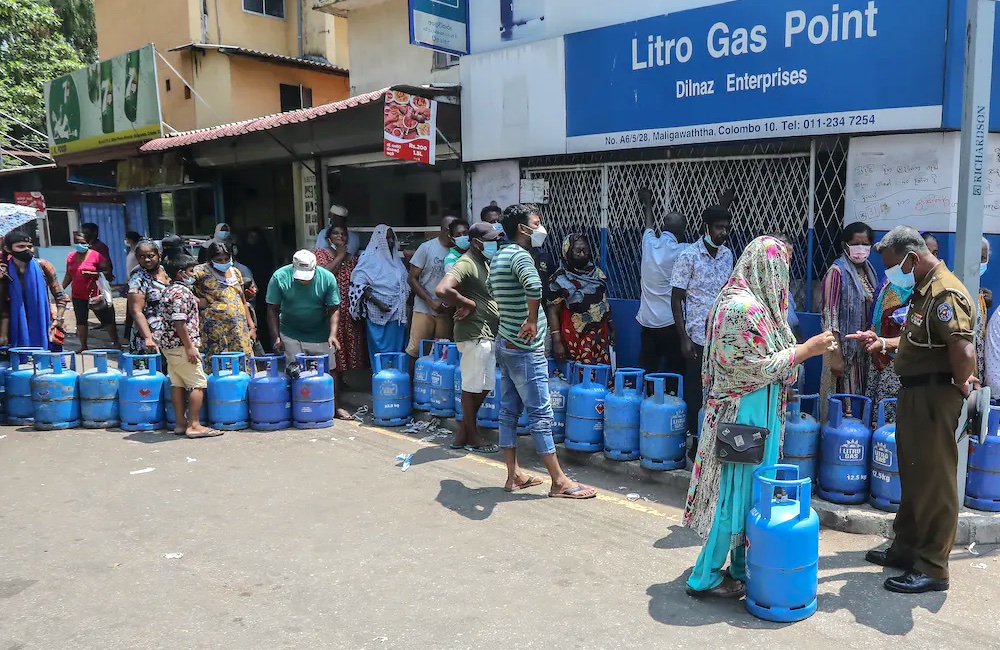Photo courtesy of The Conversation
The 2019 Presidential Elections were held on November 16, 2019. The election was hard fought and many promises were made by the different campaigns. This article analyzes the economic situation the country faces at present, arguably the toughest in its history, which is taking place alongside a difficult and complex political situation.
Macro and microeconomic indicators
There are four key indicators relating to the country’s current economic crisis. The first is the exchange rate. At present one US dollar stands at Rs. 362.94. One British pound equals Rs. 417.44. These figures are indicative of an extremely weak exchange rate that is not competitive internationally and shows the internal structural weaknesses in the economy.
The second indicator is the Sri Lankan passport. The passport of a country is an indicator of its economic position and prosperity. Countries such as the US and the UK or even India have strong passports with visa free access to several countries. As of May 2019, Sri Lankan citizens had visa free or visa on arrival access to 43 countries and territories, ranking the Sri Lankan passport 96th in the world in terms of travel freedom, tied with the Democratic Republic of Congo and the Kosovan passports. Sri Lanka has been unable to correct or to improve the standing of its passport, which has overall contributed to migration difficulties and reduced the mobility and the economic status of all citizens.
The third indicator is unemployment, in particular, youth unemployment. An analysis of the nature and type of unemployment reveals that Sri Lanka has a significant youth unemployment problem. Other authors have viewed unemployment as particularly high among the less educated but once we control for age and sector, the positive relation between education and unemployment disappears for urban youth and is significantly weakened for rural youth. Even the relation among rural youth is brought into doubt when we account for unemployment duration. Typical unemployment spells last four years or more and are not related to education. Controlling for age, more educated youths have higher unemployment rates because they left school more recently.
The fourth indicator is international debt that has accumulated over the years by taking out bilateral and commercial loans and purchasing international sovereign bonds in bulk. International debt figures for 2022 amounted to $51 billion. The latter loans are taken at higher interest rates and short repayment periods and contribute in large part to the economic crisis.
The economic crisis from a governance perspective
The economic crisis can be analyzed from the perspectve of governance. The current president has not been able to assemble a team of skilled economic advisers who can guide him on a national economic policy that can stimulate the economy, create jobs and reverse the current trajectory of the economy. Good economics is good politics and this government will find it difficult to use active fiscal and monetary policy, to manipulate the interest rates and to raise the money supply in a way that will create employment and activate a stagnating system. Analysts all around the world are talking about an economic crash while major ratings agencies have downgraded Sri Lanka.
The emotional effect of the crisis
People are creatures of emotion, not reason; they have hopes and dreams, aspirations and ambitions for their families and their children. The economic crisis has created a feeling of despair, hopelessness and inertia; there is no light at the end of the tunnel. This has contributed to mental and emotional health issues and a grim mood among the ordinary people of the country. Most people are struggling to stay afloat financially, particularly in the rural south and north outside Colombo. When you walk or drive through the streets of Colombo it is very rare not to encounter a beggar asking for some cash to feed themselves.
Conclusion
The future for Sri Lanka and the economy looks bleak. The political equilibrium is weak and is unlikely to improve soon. The financial crisis is coupled with an external debt crisis. But failure to govern the country properly and to manage the economy cannot be corrected at the last minute through international assistance. This is the lesson that Sri Lanka is currently learning. This does not appear to leave much hope for the people and the country.
The writer can be contacted at sachinparathalingam@proton.me
